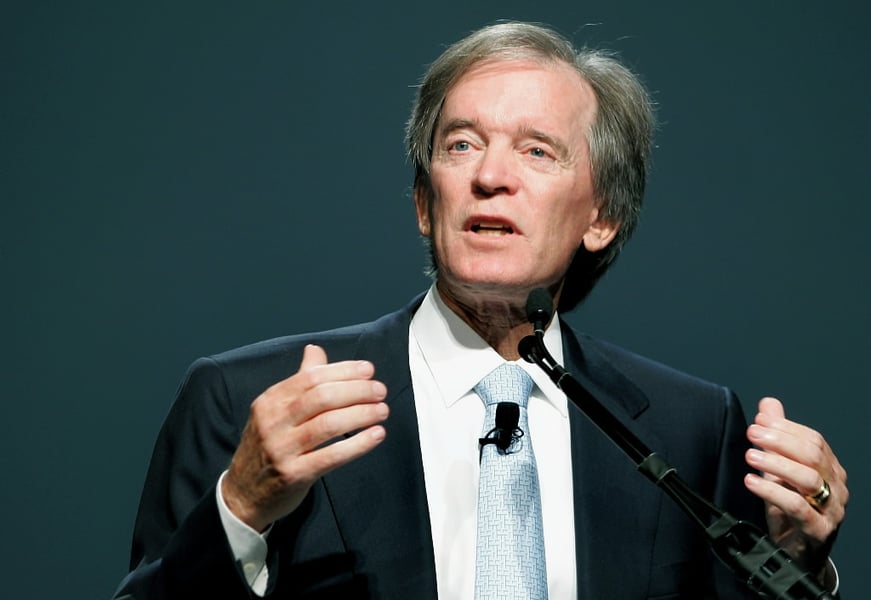Bill Gross, who runs the world's biggest bond fund at Pacific Investment Management Co., said the lower quality of sovereign debt represents a threat to the global monetary system.
Bill Gross, who runs the world's biggest bond fund at Pacific Investment Management Co., said the lower quality of sovereign debt represents a threat to the global monetary system.
Investors should favor debt of nations such as the U.S., Mexico and Brazil, and emphasize intermediate maturities over the next few years, Gross said in his monthly investment outlook posted on the Newport Beach, California-based company's website today. Equity investors should seek companies that produce stable cash flow and that are exposed to high growth markets.
Low cost funding available in “previously sacrosanct” AAA rated nations with soaring debt to gross domestic product ratios is the result of central banks' efforts to flood financial systems with cash since the sub-prime mortgage market collapse trigged a global crisis in 2008, Gross wrote.
“The global monetary system which has evolved and morphed over the past century but always in the direction of easier, cheaper and more abundant credit, may have reached a point at which it can no longer operate efficiently and equitably to promote growth,” Gross said. “Policy responses by fiscal and monetary authorities have managed to prevent substantial haircutting of the $200 trillion or so of financial assets that compromise our global monetary system, yet in the process have increased the risk and lowered the return of sovereign securities which represent its core.”
Monetary Easing
The Federal Reserve purchased $2.3 trillion of debt in two rounds of quantitative easing that have become known as QE1 and QE2 as part of its efforts to support the world's biggest economy. Policy makers in January said they plan to keep their benchmark interest rate near zero until at least the end of 2014. The central banks is schedule to end in June a maturity extension program, known as Operation Twist, where it is swapping $400 billion of its short-term debt with long-term debt.
The probability of the Fed embarking on other round of easing, which Pimco favors, is about 60 percent, Gross said today in a CNBC interview.
The European Central Bank's unprecedented provision of 1.02 trillion ($1.26 trillion) euros in three-year cash in December and February helped calm financial markets in the first quarter by removing concern that banks unwilling to lend to one another would run out of cash. The rebound was short-lived as doubts about the health of Spain's banks and questions over Greece's future send the euro to almost two-year lows.
Record Low
European leaders are unlikely to agree on selling so-called euro bonds to help finance recovery in the region, Gross said in the televised interview.
Treasury 10-year yields fell to a record low for a second day on concern the European debt crisis is widening and as data showed the U.S. economic expansion slowed during the first quarter. The benchmark 10-year yield fell as much as nine basis points, or 0.09 percentage point, to 1.53 percent.
The $259 billion Total Return Fund run by Gross beat 99 percent of its competitors this year with a 5.07 percent return. Pimco, a unit of the Munich-based insurer Allianz SE, managed $1.35 trillion of assets as of September.
--Bloomberg News--







